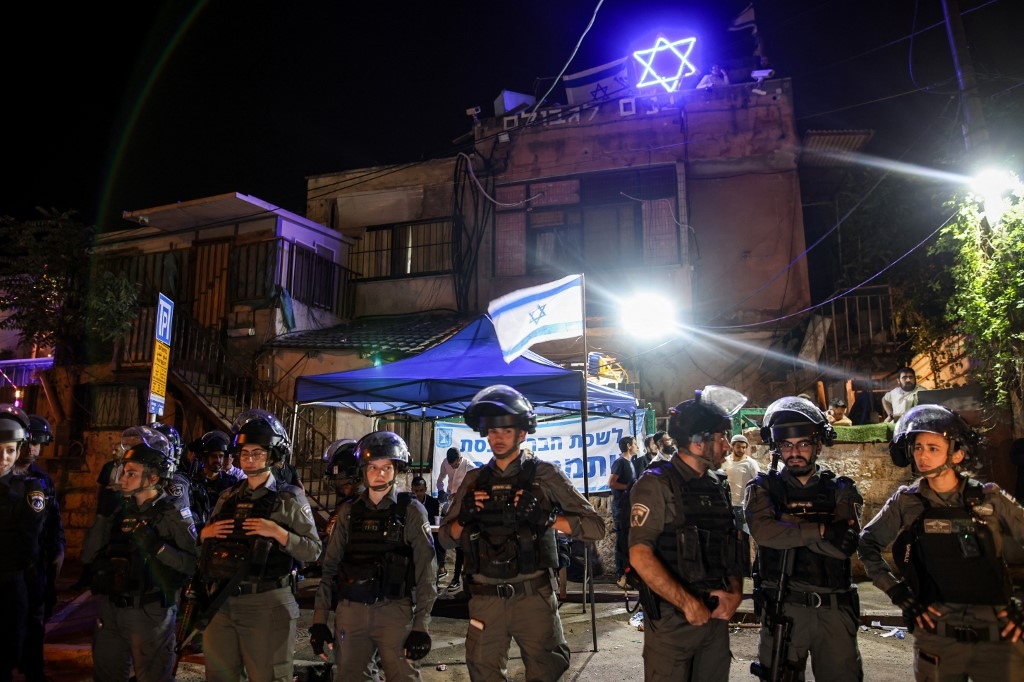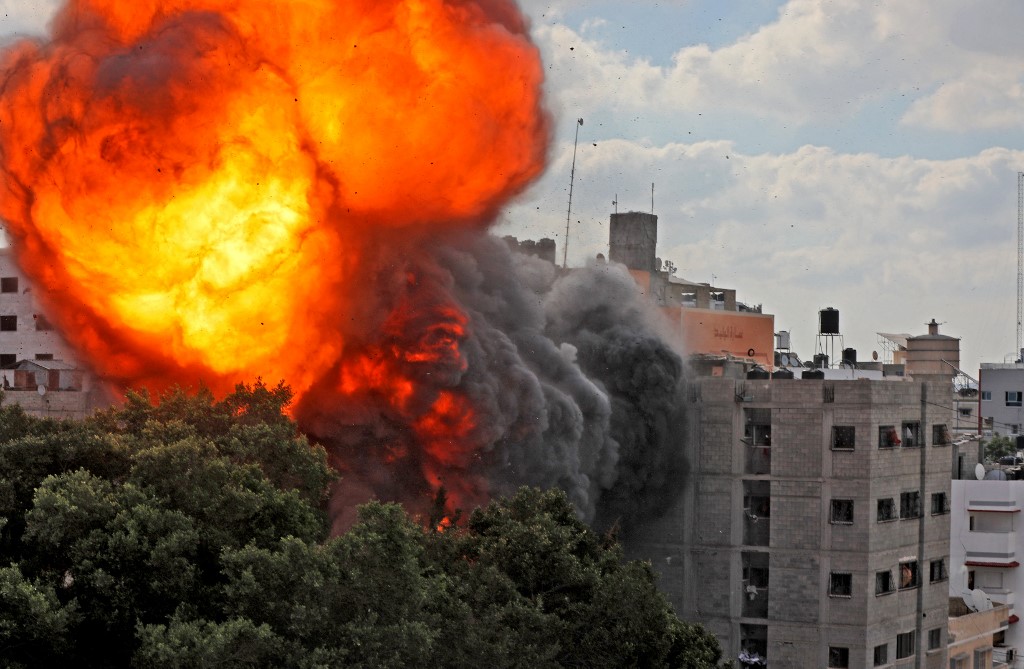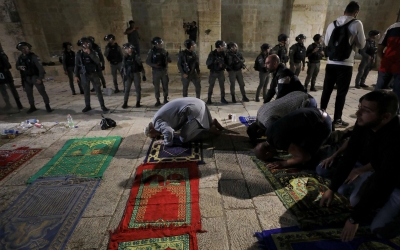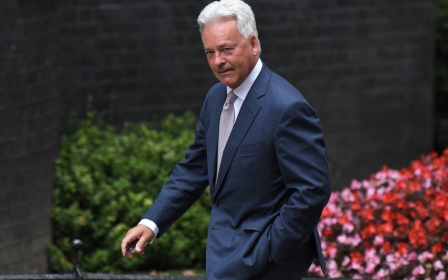The UK government has a moral blindspot over the plight of Palestinians

The beginning and end of any argument about Israel and Palestine is that it is all to do with land. The Israelis want to take territory which does not belong to them – and all of the claims and counterclaims about the rights and wrongs on either side stem from this single fundamental fact.
Israel has been recognised as a state since 1948 following a vicious conflict between June and September that year, during which 700,000 Palestinians were forced out of their homes. Today, contrary to the expressed guarantee contained in the Balfour Declaration of 1917, the rights of the non-Jews (the Palestinians) have not been protected.
International law is absolutely clear that the West Bank, including East Jerusalem, and also Gaza, do not belong to Israel
Palestinians are stateless, their land is occupied by the Israelis, and Palestine itself is perhaps the only populous territory in the world that rests unattached to any named state and is not permitted to call itself one.
International law is absolutely clear that the West Bank, including East Jerusalem (between the River Jordan and the sea) and also Gaza, do not belong to Israel. Indeed, they comprise the components of a viable state of Palestine. If Israel can be a state, then why can’t Palestine?
For many decades, the imbalance of power – i.e. US support – has emboldened successive Israeli governments to pursue a deliberate policy of expansion of illegal settlements with impunity. This is brazenly contrary to international law, and has contributed to the further subjugation of Palestinians.
New MEE newsletter: Jerusalem Dispatch
Sign up to get the latest insights and analysis on Israel-Palestine, alongside Turkey Unpacked and other MEE newsletters
The main manifestation of this creeping annexation is settlements. The word sounds benign, as if it is no more than experimental camping, but the truth is far worse. Settlements may start out as little more than the planting of a caravan but, over the decades, the process has become the full-scale annexation of their neighbours’ land.
Over half a million Israelis now live in modern-looking towns which are built on stolen land dotted all over the West Bank, thus making a would-be Palestinian state increasingly impractical.
The phenomenon is far worse than the mere construction of houses in the wrong place. Settlers are often armed and violent. They displace Palestinians from their own homes, cut down the olive trees on which their livelihood depends, take their scarce water, and frequently subject them to abusive attacks.
In turn, the Israeli Defence Forces defend the illegal settlers instead of the indigenous Palestinians they attack. The settlements are served by bespoke roads and utilities, which are either denied to the Palestinians or do not serve their communities.
Forced evictions, not a property dispute
Hand in hand with the settlement movement is the regular forced evictions and demolitions, which see so many Palestinians violently removed from their homes in their own country, all enforced and overseen by the apparatus of the Israeli state. In East Jerusalem, according to the UN, one third of all Palestinian homes are liable for demolition. This is why the forced evictions of Sheikh Jarrah is not a real estate issue, but part of a programme of getting rid of Palestinians from large areas of East Jerusalem.
The claim that Israel is a respectable democracy rings hollow when they behave in such an undemocratic way
The claim that Israel is a respectable democracy rings hollow when they behave in such an undemocratic way.
Whereas international law is clear that the West Bank is not theirs, Israelis justify their actions by claiming that the territory is ‘disputed’, as if to say that, because they want it, their opinion is equal to that of the people whose land they wish to take. It is not. Palestinians point out that the whole area of historic Palestine is disputed but, in past negotiations, they accepted the compromise of a Palestinian state on just 22 per cent of what was their country.
It is this same attitude that has created the serious unrest that has recently erupted. East Jerusalem does not belong to Israel. Because of the density of the city, and the incendiary overlap of its religious sites serving three main faiths, it has been widely regarded as an international city outside politics, with Israeli West Jerusalem and Palestinian East Jerusalem existing in a delicate yet workable balance.
Al-Aqsa assault
It is that balance that has just been destroyed by Israeli extremists. The proposed enforced eviction of over 70 Palestinians from their homes in Sheikh Jarrah has ignited the flames of disorder. This has been simmering for weeks, during which extreme right-wing Israelis have been effectively supported by their police and soldiers in scenes that should bring the utmost shame to any Israeli.
Blocking access to, and throwing stun grenades into the Al-Aqsa Mosque is one thing; beating people up and arresting children is quite another. Last autumn’s scenes of a soldier’s knee on a Palestinian’s neck should make everyone realise that Palestinian lives matter too.
It is only the crass stupidity of Hamas in Gaza deciding to fire rockets at civilians in Israel and Jerusalem that has diverted attention away from the unimpeachable moral cause of the Palestinians. But neither Hamas in Gaza nor the nasty Israeli extremists in East Jerusalem are representative of their own people.
The narrative that all Palestinians are terrorists is a vile distortion, and such accusations fail to resonate when set against the chanting and graffiti saying that all Palestinians should be killed, and that there is no such place as Palestine.
I feel an affinity with Israeli politicians such as the late Shimon Peres, and with Palestinians who strive for peace such as the late Saeb Erekat. Their decency is not confined to a few. Israel is not just Likud and Netanyahu. Here is a link to a lecture I delivered a few years ago which develops these themes in detail.
UK moral vacuum
More and more Israelis are appalled at their country’s occupation of Palestine. The campaign groups, NGOs and websites are beginning to multiply in support of human rights, justice, and a fair future for Palestinians. The UK risks being seriously out of tune with the Israeli people.
The last few weeks have starkly illustrated that the UK government has been living a lie for years. Its policy, such as it is, exists in a moral vacuum. While stating that the annexation of Palestinian land is in breach of international law and goes against countless UN resolutions, it only ever utters the language of de-escalation and intones its belief in the importance of striving for a two-state solution, supposedly a viable Palestine living alongside Israel. They no longer look as though they really believe it. Where is this second state?
While the scenes in Jerusalem have been clear for all to see there hasn’t been a single word of serious condemnation from the Conservative Friends of Israel, the Labour Friends of Israel, the Board of Deputies or the government. All have found a way of not doing so. It seems the rules-based order only counts outside Israel.
The government has a hole in its policy: if it fails to stand for justice, the Conservative Party will forever have a hole in its heart.
This article first appeared on the Conservative Home website.
The views expressed in this article belong to the author and do not necessarily reflect the editorial policy of Middle East Eye.
Middle East Eye delivers independent and unrivalled coverage and analysis of the Middle East, North Africa and beyond. To learn more about republishing this content and the associated fees, please fill out this form. More about MEE can be found here.







